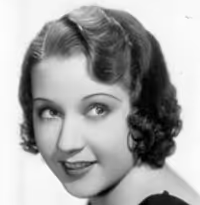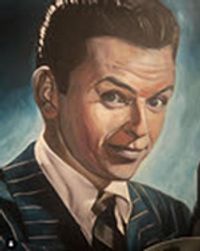My Fair Lady Ending
#125My Fair Lady Ending
Posted: 7/10/19 at 8:20pm
Whether one likes it or not, there's no reason not to try it. Some will like it, some won't, some will prefer one to the other. So for me it's just personal preference.
#126My Fair Lady Ending
Posted: 7/10/19 at 9:21pm
7thbighero said: "This and Oklahoma! bring up an interesting discussion on changingnon verbal staging. Personally, I love the new ending, and it elevated the revival from the movie in my book.I get the argument that MFL isn’t Pygmalion, but since a majority of the text is lifted from Shaw, it’s not as drastic. Maybe Lerner’s intent in 1956 would differ from his intent today.
Changes to narratives over time are inevitable"
(Emphasis added.)
For the record, in his autobiography, Lerner claims this is not true. IIRC, he claims that something like 75% of the MFL dialogue is his own invention.
I don't care enough to do a comparison and verify Lerner's claim. And one might do well to be skeptical about such a claim from any adapter. But that's what Lerner wrote.
My own sense is that however much of MFL Lerner invented, the most famous lines seem to come directly from Shaw.
#127My Fair Lady Ending
Posted: 7/10/19 at 10:13pmIt's weird. When I saw this ending I felt sad. I thought the crestfallen body language of Lauren Ambrose spoke volumes about the pain it took to walk away from Higgins. But my mom who is much more old fashioned than me loved the ending. She said "they're too far apart in everything. Better to marry a nice boring boy like Freddy." She thought the original My Fair Lady ending was pure fantasy and she as an older woman who'd seen relationships fail thought Eliza and Higgins were doomed.
#128My Fair Lady Ending
Posted: 7/11/19 at 12:23am
Dip into some of the dialog in Acts IV and V. This admission by Higgins that he would miss Eliza and hoped that she would stay was unexpected by me.
HIGGINS. You never asked yourself, I suppose, whether I could do without YOU.
LIZA [earnestly] Don’t you try to get round me. You’ll HAVE to do without me.
HIGGINS [arrogant] I can do without anybody. I have my own soul: my own spark of divine fire. But [with sudden humility] I shall miss you, Eliza. [He sits down near her on the ottoman]. I have learnt something from your idiotic notions: I confess that humbly and gratefully. And I have grown accustomed to your voice and appearance. I like them, rather.
LIZA. Well, you have both of them on your gramophone and in your book of photographs. When you feel lonely without me, you can turn the machine on. It’s got no feelings to hurt.
HIGGINS. I can’t turn your soul on. Leave me those feelings; and you can take away the voice and the face. They are not you.
And I have grown accustomed to your voice and appearance. I like them, rather.
I think that I see a song there.
http://www.kkoworld.com/kitablar/Bernard_Shaw_Secilmis_eserler_eng.pdf
Before you become too enamored with the man, recall that in 1931 this socialist was a guest of Joseph Stalin in Moscow, where his 75th birthday was lavishly celebrated.
Shaw's love affair with Stalin did not change as events unfolded over the next twenty years. On the mantelpiece of the room where Shaw died in 1950 was a framed portrait of the dictator.
#129My Fair Lady Ending
Posted: 7/11/19 at 1:04am
Ol' Blue Eyes, I'm sure you remember how reluctant leftists in general were to criticize Stalin because (a) the enemy of my enemy is my friend; (b) the Red Scares here in the U.S. were so over-the-top it became difficult to believe any anti-Communist news; (c) Soviet secrecy kept most of the world from realizing just how bad things were under Stalin; and (d) McCarthyism was so terrible it made it difficult to believe Stalin wasn't at least somewhat better.
The eventual rejection of Stalinism by Western socialists (from Hellman to Miller) didn't really get going until after Stalin died in 1953 and Khruschev began opening the archives on the great purges Stalin had led.
For decades dating back to the late 1800s, Shaw had been active in the Fabian Society, a socialist movement that believe in peaceful, evolutionary change rather than violent revolution of the working class. It shouldn't surprise us that he misread Stalin. He died before the truth became widely known outside the USSR.
#130My Fair Lady Ending
Posted: 7/11/19 at 6:37pm
Shaw's politics and personal life shouldn't really enter into an evaluation of his work, and I say that knowing he considered his work to be propaganda. The fact is, almost no one who is genuinely a socialist or a Nietzschean much cares for his plays, and tons of people who are neither love them.
#131My Fair Lady Ending
Posted: 7/11/19 at 10:36pm
Ol' Blue Eyes, I'm sure you remember how reluctant leftists in general were to criticize Stalin because (a) the enemy of my enemy is my friend; (b) the Red Scares here in the U.S. were so over-the-top it became difficult to believe any anti-Communist news; (c) Soviet secrecy kept most of the world from realizing just how bad things were under Stalin; and (d) McCarthyism was so terrible it made it difficult to believe Stalin wasn't at least somewhat better.
I think that I preferred the prior avatar.
I didn't write that with the intention of dragging Shaw's character through the mud. There are a lot of sources out there that do claim that Shaw knew about the mass killings and defended them. It's not worth my time to check them out. Much of it is and was probably yellow journalism, but maybe not all of it.
The reason for the mention of the Stalin connection was just to indicate that Shaw, despite the craft of his plays, was not a brilliant moralist from whom we all could learn. I understood myself how easy it was to be caught up in a political ideology that to others appeared ridiculous. I was a veteran of the two Washington antiwar demonstrations. The big one in November, 1969, where I took a little tear gas for the cause and the smaller Kent State demonstration the following May, in which I suffered the greater indignity of having to endure a speech from sex kitten turned political activist Jane Fonda.
Although we were right to oppose the war, we did not understand the reason for it. We said idiotic things like it was "to make the world safe for Coca Cola." No. The reason for the Vietnam War, and the Korean War, was the Domino Theory. These people really believed that the fall of Vietnam to the Communists would bring us one step closer to International Communism enveloping the world.
So I don't blame Shaw for being a disciple of Stalin. It could have happened to any of us if fed the wrong propaganda for too long a period.
McCarthyism was so terrible it made it difficult to believe Stalin wasn't at least somewhat better.
McCarthyism was a little before my time and I confess that I have never really understood it well. I've always gotten the impression that being a victim of McCarthyism was a badge of honor that tied the victims together for the rest of their lives. A source of pride to have been singled out and survived. And the worst of the era was just two years, 1953-54. In 1954 the Senate voted to censure McCarthy and the witch hunts were over. Senator McCarthy was a friend of the Kennedy family. John Kennedy was the only Democratic Senator not to vote for the censure, as he was not present in the Senate that day. Bobby Kennedy chose Senator McCarthy to be the godfather of his first child.
I respect the Kennedys. What do you make of their friendship with McCarthy?
Videos





